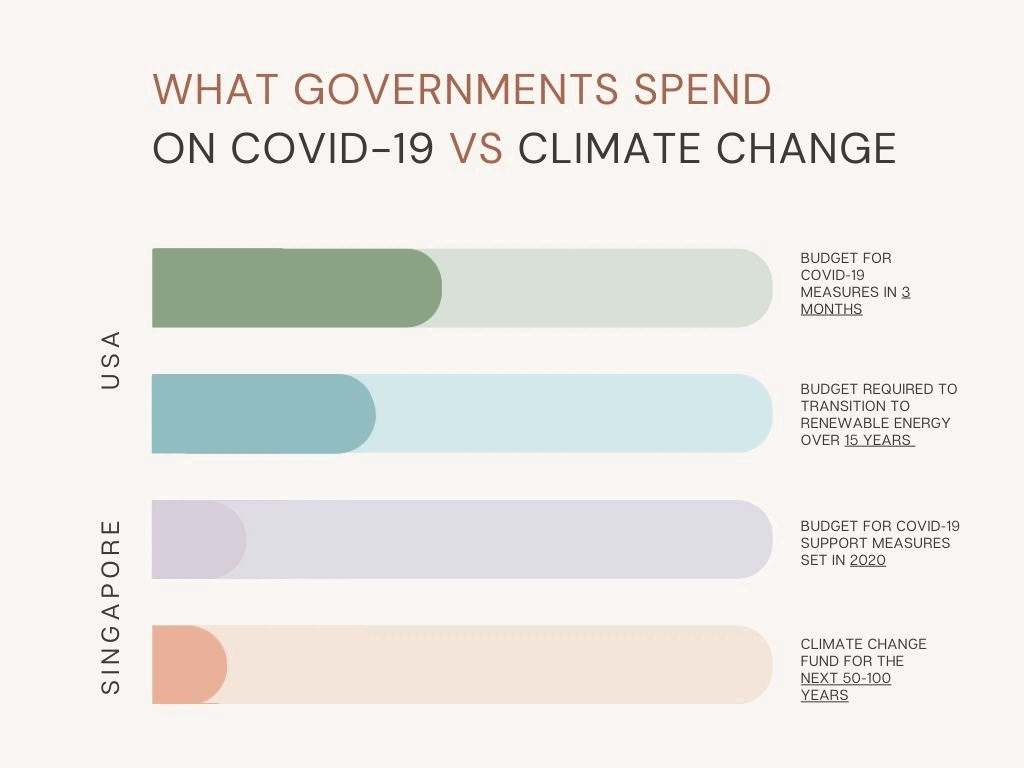- Luật
- Hỏi đáp
- Văn bản pháp luật
- Luật Giao Thông Đường Bộ
- Luật Hôn Nhân gia đình
- Luật Hành Chính,khiếu nại tố cáo
- Luật xây dựng
- Luật đất đai,bất động sản
- Luật lao động
- Luật kinh doanh đầu tư
- Luật thương mại
- Luật thuế
- Luật thi hành án
- Luật tố tụng dân sự
- Luật dân sự
- Luật thừa kế
- Luật hình sự
- Văn bản toà án Nghị quyết,án lệ
- Luật chứng khoán
- Video
- NGHIÊN CỨU PHÁP LUẬT
- ĐẦU TƯ CHỨNG KHOÁN
- BIẾN ĐỔI KHÍ HẬU
- Bình luận khoa học hình sự
- Dịch vụ pháp lý
- Tin tức và sự kiện
- Thư giãn

TIN TỨC
fanpage
Thống kê truy cập
- Online: 223
- Hôm nay: 198
- Tháng: 1621
- Tổng truy cập: 5245625
The realities of green recovery in a drawn-out pandemic
The pandemic has made it clear that we need to be more adaptive. From the way our lifestyles are changing with the continuation of home-based work and learning, to long-term effects on the economy and expectations on accountability and personal autonomy, we must all learn how to adapt for us humans (and other living creatures) to survive into the future generations.
Sustainable development has been a major priority for governments throughout the world, but with little sign of the pandemic easing soon, efforts towards a green recovery — a movement of environmental, regulatory and fiscal reforms to recover prosperity in the wake of the pandemic — appear to be on the back burner as we move into the third year of living with Covid-19. With the impact of climate change becoming more severe, natural disasters happening more frequently and abruptly, and economies fluctuating wildly across the globe, it is easy to lose sight of Sustainable Development Goals — a blueprint crafted by the United Nations to address global challenges we face including poverty, inequality, climate change and environmental degradation.
A year ago, SMU Assistant Professor of Strategic Management Simon Schillebeeckx was featured on a podcast by The Straits Times on what a “green recovery” from Covid-19 could look like for Singapore. City Perspectives catches up with Asst Prof Schillebeeckx, whose research interests include Strategic Natural Resource Management, on the extent to which the region has been upholding its green recovery promises, especially as the world is still very much battling the effects of the pandemic and the rise of new variants.
Recovery in reality
2021 has been a vital year for recovery efforts and taking steps towards actionable change for the environment. Announced at the recent COP26 in Glasgow, four high-profile donors to the Asian Development Bank, including the UK government, have pledged US$665 million for green infrastructure investments in Southeast Asia — one of the most vulnerable regions facing climate change.
To make real progress toward a sustainable global economy, governments and organisations alike must take the lead. The “arc of engagement” is an essential step in this process that consists of three components: leadership from international leaders; collaboration among allies or partners on shared goals where there are common concerns about security issues like trade barriers, while also fostering dialogue across borders through coordinated outreach initiatives at home and abroad by multiple stakeholders.
“In general, I think the idea of a green recovery is more a concept than a practice,” admits Asst Prof Schillebeeckx.
“Many governments have spoken about it but, unfortunately, it remains quite superficial for most including here and in the region.”
Singapore’s Green Plan 2030 to harness sustainability as “a new engine of growth” while strengthening the country's commitments under the United Nations Sustainable Development Goals and the Paris Agreement on climate change is a step in the right direction, but Asst Prof Schillebeeckx hopes to see it push the envelope of sustainability commitments by being more ambitious.
Based on the stratospheric amount of resources used to fight Covid-19 in Singapore and the rest of the world, it is clear to see that the pandemic was, rightfully so, considered a health emergency all over the world. For example, it would cost the US about US$5.7 trillion to transition completely to renewable energy over 15 years — but the country had already committed $6 trillion to deal with Covid-19 within three months in 2020 at the onset of the pandemic.

“As compared to Covid-19 efforts, climate change is not considered a health emergency or even an emergency at all, when, in reality, many more people are dying (and will die) of climate-related effects, including air pollution, than of Covid-19,” observes Asst Prof Schillebeeckx.
“Countries have understandably prioritised the short term threat of Covid, but they have done so typically in a very narrow way, closing borders and protecting their people above all else, leaving the developing world to fend for itself. That’s also the story of climate inaction. COP26 at best brought marginal improvements and lacked significant commitments.”
Where we stand
While, financially, governments may have appeared to place environmental concerns lower on the totem pole of priorities, the news is not all bad. Concern about climate change and pollution from the public has surged, as the Ipsos MORI's Issues Index for August 2021 revealed how 32 per cent of UK respondents mention climate change and pollution as a major issue for Britain, making it the second-biggest concern for the country after Covid-19.
“If we look at citizen sentiment and consumption, we observe a shift,” says Asst Prof Schillebeeckx.
“More and more people are connecting the pandemic to environmental issues. What happened is that Covid-19, for the first time, made us feel physically interconnected. After decades of being connected through trade, and about 15 years of being connected digitally through social media, people now recognise that everyone is physically interconnected. This mindset shift will hopefully spur more citizen action around the world.”
“What happened is that Covid-19, for the first time, made us feel physically interconnected. People now recognise that everyone is physically interconnected. This mindset shift will hopefully spur more citizen action around the world.”
— SMU Assistant Professor of Strategic Management Simon Schillebeeckx
The past year has also seen some progress made in terms of developing environmental, social and governance frameworks and regulations, such as the EU Taxonomy Regulation — which entailed the creation of a common classification system for sustainable economic activities, and global commitments arising from COP26 negotiations. But global superpowers are still lagging in setting market and regulatory conditions required to create much-needed change: A 2021 report by nonprofit organisation Ceres shows that the majority of US financial regulators “have yet to act on the climate crisis and lag far behind their global counterparts and what the science demands”, beyond the acknowledgement of climate change as a “financial stability risk” by the Federal Reserve In 2020.
“We made progress in COP26 but it was nowhere near enough,” states Asst Prof Schillebeeckx.
“The much-touted agreement on methane is, from an ecological perspective, quite embarrassing because no single country commits to reducing its own emissions. Without much stronger controls, this will amount to very little.”

Sceptics also have concerns over the COP26 agreement to halt deforestation by 2030. Brazil, home of the Amazon rainforest and one of the signatories of the agreement, has seen deforestation rates in the country reach a 12-year high in 2019; while the Indonesian environment minister Siti Nurbaya Bakar has declared the zero deforestation commitment as “inappropriate and unfair” days after signing the agreement. Asst Prof Schillebeeckx also questions the long duration before reaching the target year, which might lead to companies continuing to cut down age-old forests for almost another decade.
Besides Indonesia’s flip-flopping attitude to deforestation, organisations in the region also seem to be less motivated in embedding a sustainability focus into their strategic processes. For example, most ASEAN nations appear to lag behind the global average of ESG risk.
“I speculate that this has to do with the relative newness of this type of work in Asia,” shares Asst Prof Schillebeeckx.
“Europe and the US have been ‘doing corporate sustainability (CSR)’ longer. Furthermore, to get sustainability into the board, you also need people with the right levels of experience at board level to be knowledgeable about sustainability and it takes time to develop this expertise.”
He adds, however, that there has been an uptick in sustainable ventures and climate tech since the pandemic began. With the acceleration of technological advancement and adoption, such startups have experienced strong growth and access to business processes to generate positive impact. The pandemic has also catalysed demand for ESG investments, with Singapore bank UOB reporting close to $300 million in ESG-focused product transactions in 2020.
“While the old way of thinking about sustainability and CSR still focuses on trade-offs and balancing negative and positive impact, the new way sees a much clearer separation between footprint and handprint,” adds Asst Prof Schillebeeckx.
“As always, investors go where the coolest kids are. A couple of years ago, that was in artificial intelligence, machine learning and blockchain, now it is in climate tech and I hope this will stay the case for the next decades. We all know we need it!”
By ccteo@smu.edu.sg
Các bài viết khác
- Vài nét Dự báo thời đại phục hưng và khai sáng của loài người sau đại dịch Corona-2019.7-2021(khởi đầu từ tháng 9 năm giáp thìn 2024) (25.06.2021)
- Từ sự kiện Tổng biên tập báo TIME Greta Thunberg là Nhân vật của năm 2019 đến báo cáo Biến đổi khí hậu Phúc trình của IPCC báo động đỏ cho nhân loại 82021 (15.01.2020)
- Khủng hoảng khí đốt của Nga vô tình đẩy than đá lên ngôi (10.02.2022)
- Áp lực lạm phát năm nay lớn thế nào? (10.02.2022)
- Việt Nam có thể mở cửa hoàn toàn vào tháng sau (10.02.2022)


















































 Yahoo:
Yahoo: 